August 31, 2021
-copy.jpg)
Field teams have completed data collection and successfully demobilized.
The Fifth Botswana HIV/AIDS Impact Survey (BAIS V) has successfully completed field data collection, and teams have demobilized out of the field.
BAIS V reached nearly 20,000 participants, more than 13,500 households, and completed more than 10,000 household interviews.
The survey was originally slated to take place in 2020 but paused due to the onset of the COVID-19 pandemic. In February 2021, the BAIS V survey officially launched.
Although this was the fifth survey of its kind conducted in Botswana, this was the first conducted under the trying circumstances of a pandemic.
“These last few months of implementation have been a journey of collective resilience and I am proud of every community mobilizer, field and satellite lab team member, every regional and technical lead, and every member of our operations team,†said Dr. Reson Marima, BAIS V project director.
The goal of the survey, which includes persons aged 6 weeks to 64 years old, is to estimate the current incidence and prevalence of HIV and assess Botswana’s progress towards HIV epidemic control.
The survey teams were comprised of community mobilizers, who help build survey awareness and participation, team leads, counselor interviewers, field testers, and laboratory personnel. Samples were processed at a network of satellite laboratories throughout the country and are being analyzed at a central laboratory in Botswana.
BAIS V is being led by the Botswana Ministry of Health and Wellness (MOHW), Botswana National AIDS and Health Promotion Agency (NAHPA), Statistics Botswana, and the National Health Laboratory. The Centers for Disease Control and Prevention is providing funding under PEPFAR as part of the Population-based HIV Impact Assessments (PHIA) being conducted in PEPFAR-supported countries. The PHIA are providing critical information about the status of HIV/AIDS, while also building capacity by strengthening the workforce and providing the infrastructure needed to design, conduct, analyze, and disseminate results. PHIA measure national and regional progress toward meeting UNAIDS' 90-90-90 goals and help to refocus resources where needed to move countries closer to HIV epidemic control.
At the conclusion of the survey, several of the principal investigators sent thank you messages to the BAIS V team, which is viewable below.
Contact
Center for International Health, Education, and Biosecurity
Institute of Human Virology
Anthony Okoth
Regional Communications Specialist
Related stories
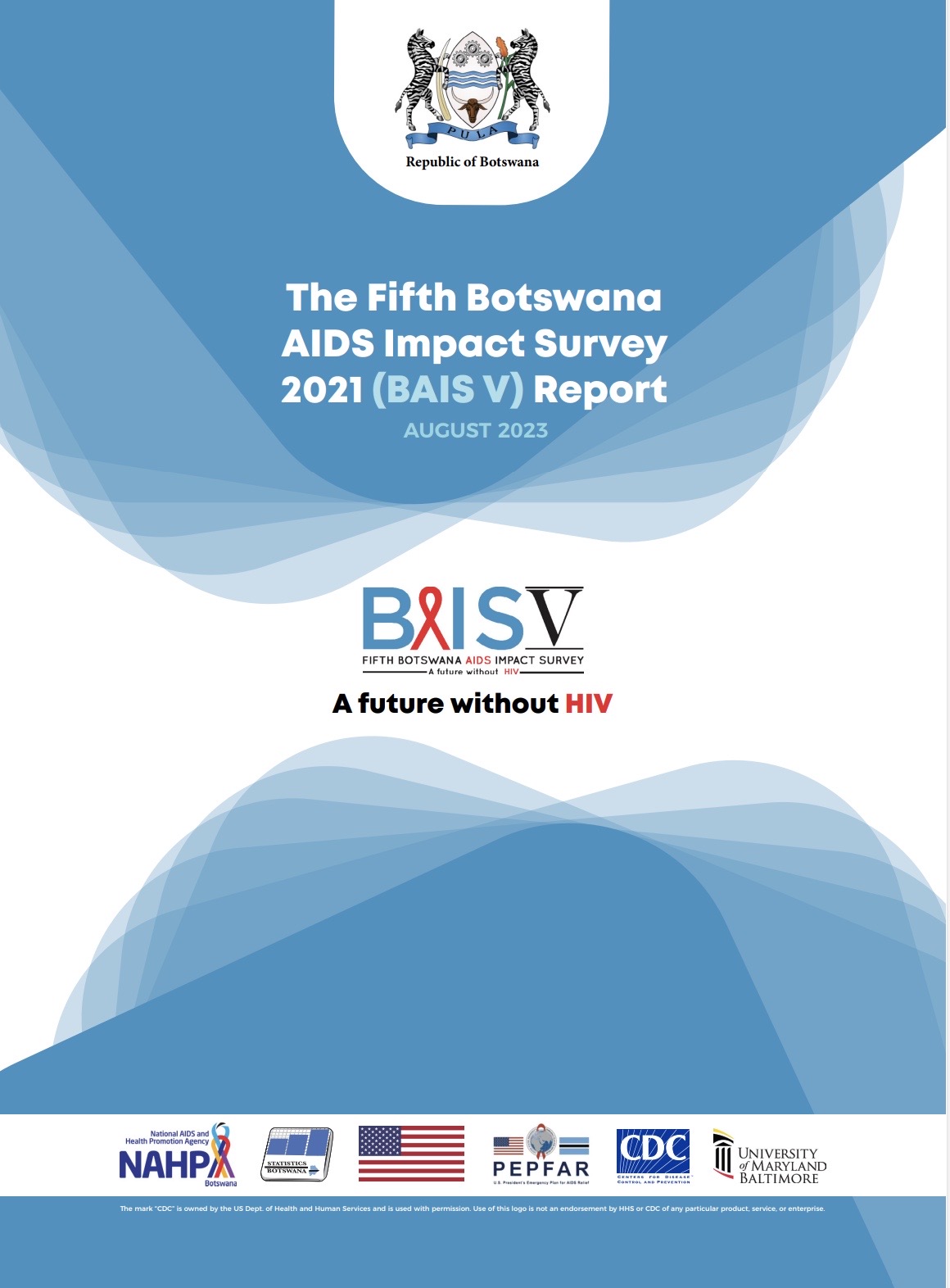
Tuesday, September 19, 2023
BAIS V Report Launched
The Fifth Botswana AIDS Impact Survey (BAIS V) Report 2021 is a nationally representative household-based survey conducted between March and August 2021. Its main aim was to provide information on national and district-level progress towards achieving key HIV targets.

Friday, July 07, 2023
The Intersection of Non-Communicable Diseases and HIV: Opportunities for Botswana to Lead the Response
For a country like Botswana with a high HIV burden, integration of healthcare services is vital to provide comprehensive interventions. Lifestyle factors such as tobacco smoking, alcohol use, unhealthy diet, and physical inactivity heighten the risk of developing NCDs for people living with HIV.

Friday, July 07, 2023
BSMART Study Launch: Combating Smoking Among HIV-Positive Individuals In Botswana
BSMART focuses on identifying effective interventions for HIV-positive individuals who smoke. The launch of the BSMART Study signifies a significant step forward in tackling tobacco use among HIV-positive individuals in Botswana.
Monday, March 21, 2022
US government donates BIAS V survey equipment to Botswana government
The Maryland Global Initiatives Cooperation (MGIC) and Botswana-University of Maryland School of Medicine Health Initiative (Bummhi) held a handover event for equipment used in the Fifth Botswana AIDS Impact Survey (BAIS V) on March 8, 2022 in Gaborone. BAIS V was funded by the Centers for Disease Control and Prevention (CDC) and implemented by MGIC-BW.
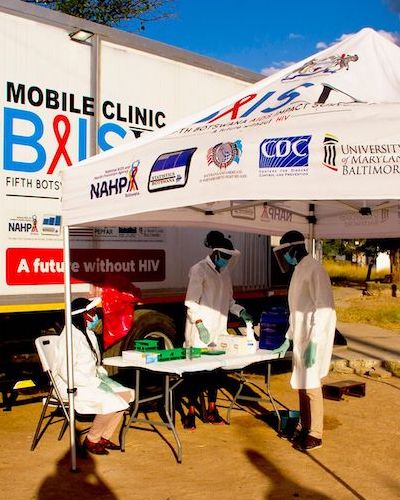
Wednesday, December 01, 2021
Preliminary results of national HIV survey (BAIS V) demonstrate Botswana’s remarkable progress achieving HIV epidemic control
Preliminary results from the fifth Botswana HIV/AIDS Impact Survey (BAIS V), announced today by the President, His Excellency Dr. Mokgweetsi E. K. Masisi demonstrate that for the first time at a national level among adults aged 15-64, Botswana has exceeded the 2020 UNAIDS 90-90-90 targets which call for 90 percent of all people living with HIV (PLHIV) to be aware of their status, 90 percent of those aware of their status to be on antiretroviral treatment (ART), and 90 percent of those on ART to achieve viral load suppression.
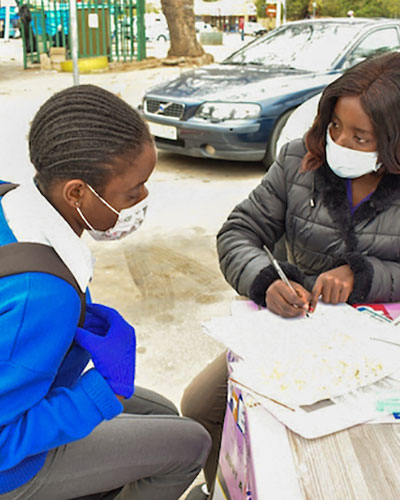
Monday, September 27, 2021
Bummhi Assists National Rollout of PrEP in Botswana
Bummhi — Ciheb’s local partner in Botswana — has made key contributions to the introduction, rollout, and scale up of pre-exposure prophylaxis (PrEP) on a national level to help achieve the UNAIDS 90-90-90 HIV targets more quickly. The rollout process began in 2015 but significantly increased in the last year.
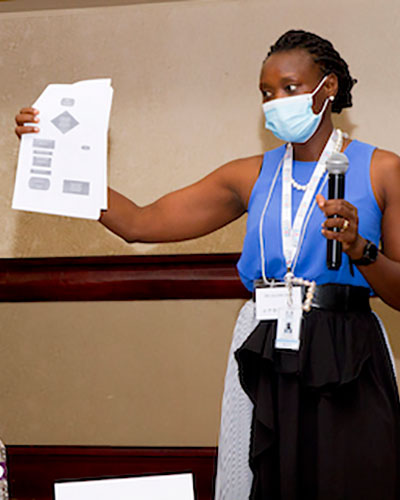
Saturday, September 25, 2021
COVID-19 Team Helps Steer BAIS V Survey Through Field Implementation in Botswana
At the resumption of the fifth Botswana HIV/AIDS Impact Survey (BAIS V), the project convened a small group of three to lead the COVID-19 response. Over the following months, this trio would lead a herculean effort to safeguard the health of staff and participants and allow the survey to proceed as safely as possible.
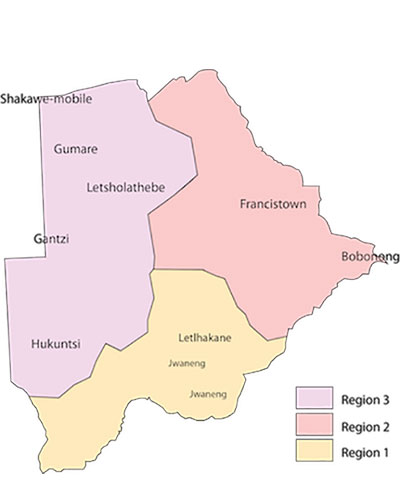
Tuesday, June 01, 2021
HIV/AIDS Survey in Botswana Enters New Phase
The Fifth Botswana HIV/AIDS Impact Survey (BAIS V) has now been in the field for nearly two months and has completed the first wave of implementation. Approximately 3,800 households have been surveyed across the project’s three regions (see map below). This represents approximately one-third of the 13,564 households that will be surveyed nationwide before the project concludes this summer.

